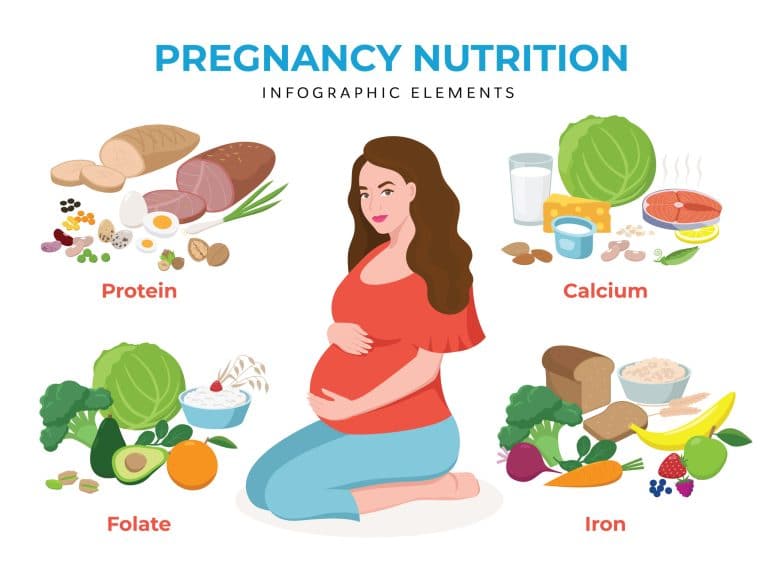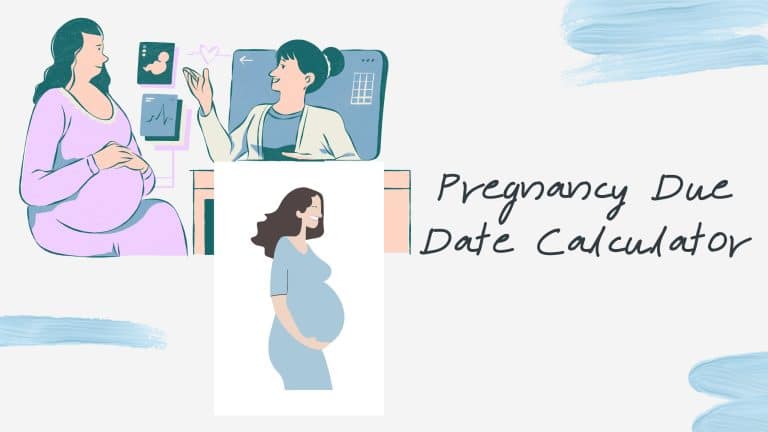Pregnancy is a remarkable journey filled with excitement and challenges but can also bring about emotional changes.
So, taking care of your emotional well-being during this time is crucial for a healthy pregnancy experience.
However, having a baby is a big deal. It’s not just about the body changes; it’s a rollercoaster of feelings, some good, some tough.
Before diving into this content, read our previous blog to understand how it started.
Our previous blog on when to start a baby registry provides essential context.
In this guide, we will explore practical and simple ways to calculate pregnancy’s emotional ups and downs, ensuring a positive and healthy experience for both mother and child.
How Do You Maintain Emotional Wellness During Pregnancy?
1. Open Communication
Communication is key in any relationship, including the one you have with your partner, family, and healthcare provider.
Share your thoughts, fears, and joys openly. It not only strengthens your support system but also improves understanding.
2. Educate Yourself
Knowledge is empowering. Take the time to learn about the different stages of pregnancy, potential challenges, and ways to cope.
Understanding what to expect can reduce anxiety and contribute to a more emotionally stable experience.
3. Self-Care Rituals
Always establish self-care routines that prioritize your mental well-being. This could include meditation, gentle exercise, reading, or a warm bath.
Taking time for yourself and doing things you enjoy can help reduce stress and make you feel more positive.
4. Build a Support Network
Surround yourself with a supportive community.
Whether it’s friends, family, or other expectant mothers, having people to share your journey with can provide comfort and encouragement.
5. Acceptance of Emotional Changes
Pregnancy brings hormonal fluctuations that can impact your mood. Accept that emotional highs and lows are a natural part of the process.
Give yourself grace and understand that it’s okay to feel mixed emotions.
6. Healthy Lifestyle Choices
A well-balanced diet, regular exercise, and sufficient sleep contribute to overall well-being.
These factors positively affect your physical health and play a crucial role in stabilizing your emotional state. Attending specialized prenatal yoga classes can help expectant mothers restore and revive both their physical strength and mental well-being during pregnancy.
7. Mindfulness and Relaxation Techniques
Incorporate mindfulness practices and relaxation techniques into your daily routine.
Deep breathing exercises, yoga, or guided imagery can help you stay centered and manage stress.
8. Celebrate Milestones
Take time to celebrate each milestone of your pregnancy.
Whether it’s the first ultrasound or feeling the baby kick, acknowledging these moments can enhance the joy and connection with your growing baby.
9. Professional Support
Don’t hesitate to seek professional support if needed.
A therapist or counselor experienced in pregnancy-related issues can provide guidance and a safe space to express your feelings.
10. Prepare for Labor and Parenting
Educate yourself on the birthing process and parenting techniques.
Feeling prepared for the future can alleviate anxiety and contribute to emotional stability during pregnancy.
Does Pregnancy Make You Happy?
Well, it’s quite not simple to answer this question. Because pregnancy can bring a mix of emotions, and whether it makes you happy can vary from person to person.
For some, becoming a parent brings immense joy and excitement. However, the excitement of meeting the new baby and the thought of starting a family can create a sense of happiness and fulfillment.
Moreover, it’s essential to recognize that pregnancy also comes with challenges and changes.
Physical discomfort, hormonal shifts, and the overall adjustment to the changes in your body may bring moments of stress or worry. It’s entirely normal to have a range of emotions during this time.
So, always seek support from your partner, friends, and family, which can significantly contribute to your happiness during pregnancy.
Sharing your feelings, receiving encouragement, and knowing you’re not alone in this journey can make a positive difference.
Ultimately, the happiness experienced during pregnancy is a unique and personal journey.
Welcoming joyful moments and acknowledging the challenges can lead to a more balanced and positive experience.
Remember that having mixed feelings is okay; seeking support can enhance your well-being during this special time.
Conclusion
When you’re pregnant, it’s important to take care of your feelings. Talk openly with others, take care of yourself, and have people around who can help.
Enjoy the changes, celebrate the important moments, and know that every emotion is part of the amazing journey to becoming a mom.
Enjoy the special moments, and look forward to the special bond with your little one.
Taking care of your emotions is good for you and your growing family’s health and happiness.
Congratulations on your pregnancy, and may you keep feeling good as you welcome your new family member.
Frequently Asked Questions
How Can I Control My Emotional Breakdown During Pregnancy?
Stay connected with supportive friends and family, practice deep breathing, exercise gently, prioritize self-care, and consider talking to a therapist.
Remember, it’s okay to ask for help.
How Can I Control My Mood Swings During Pregnancy?
Prioritize self-care, get enough rest, communicate your feelings, engage in light exercise, and surround yourself with positivity.
Understanding that mood swings are normal during pregnancy can also ease your mind.
What Happens if a Mother Cries During Pregnancy?
Crying during pregnancy is normal and usually harmless. It releases stress, and hormones like endorphins may help uplift mood.
However, persistent emotional distress should be discussed with a healthcare provider.
When Are You Most Emotional During Pregnancy?
Emotional highs and lows during pregnancy can occur at any time, but the first trimester might bring mood swings due to hormonal changes.
The third trimester, with its anticipation and physical discomfort, can also trigger emotions. Every woman is unique, so emotional experiences vary.
Which Trimester is Most Emotional?
Emotional ups and downs can happen in any trimester, but the first trimester may see mood swings due to hormonal shifts.
With its mix of anticipation and physical changes, the third trimester can also bring about heightened emotions for some expectant mothers.











